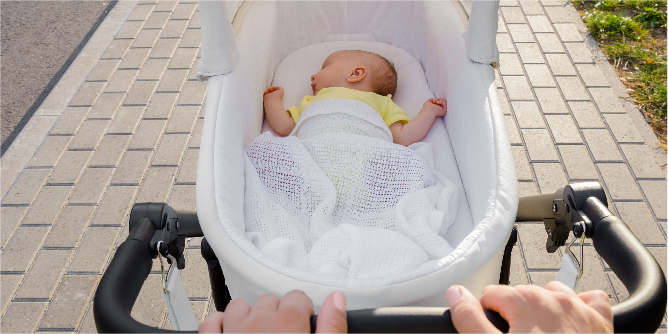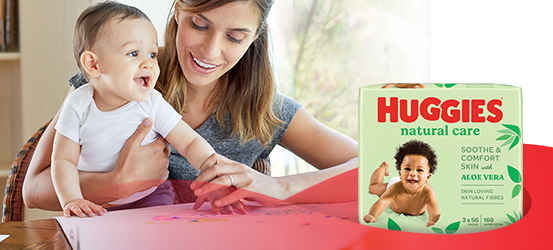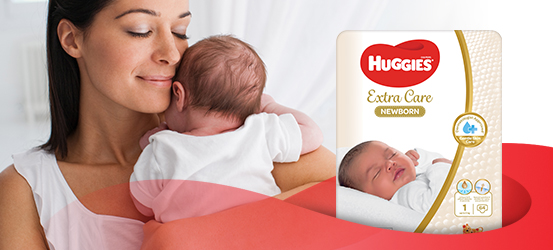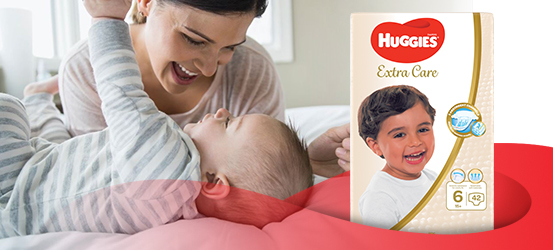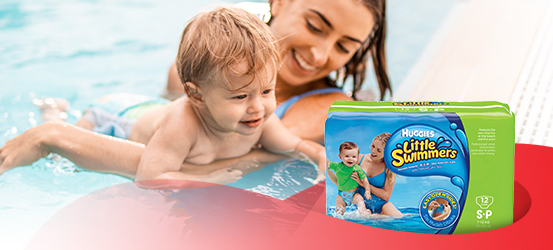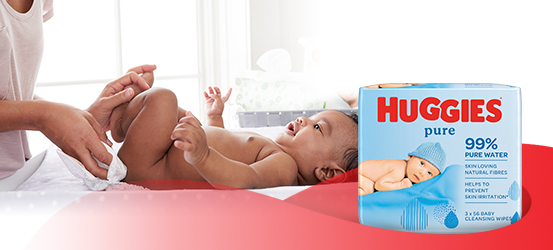It is common for mothers to feel a sense of overwhelming relief when their babies are around 2 weeks old. Getting through labour and childbirth is a big concern for most women, even if they don't always acknowledge it. There can also be a sense of disappointment that the excitement of pregnancy is over, particularly for women who loved being pregnant.
Although it sounds really strange, many women develop a crush on their obstetrician and go through a mini-grieving process when this relationship comes to its natural end. The sense of trust that develops over pregnancy does tend to foster closeness with most healthcare providers. Rationalising this is one thing, processing the emotions can be another thing entirely.
What's that noise?
At 2 weeks old, your baby will have become a little more familiar to you. The noises they make, their feeding and sleeping habits won't be so foreign anymore. Every day, your baby will settle into its newly independent life a little more. You will frequently be reminded of just how vulnerable they are and how much they rely on you to meet their every need.
Sleeping
Your baby is likely to still spend most of its day sleeping and feeding. It is common for young babies to have a couple of wakeful periods each day.
Sometimes, you may find your baby cries for no apparent reason, which can be very distressing. As a mother, you want to soothe and comfort your baby, but it can be difficult to know how to do this properly. Walking while holding your little one close, rocking them, cuddling them, or even enjoying a deep warm bath are some of the more effective ways of helping a newborn to soothe.
The safest place for your 2-week-old baby to sleep will be in their own safe cot or bassinette, beside your bed. You'll probably find that you need the reassurance of being able to see them and check they are okay. Far from sleep being a quiet time, babies can be very noisy when they are sleeping. Grunting, groaning, whimpering, snuffling and moving around are all common sleeping behaviours and are still considered very normal.
Behaviour
A lot of your baby's energy will be going into their feeding at this age. If they were born premature, they may be even more sleepy than normal. You might even find yourself needing to wake them for feeds. Jaundice, being born small and pregnancy complications can all cause newborn babies to be sleepy. Try unwrapping your baby gently to wake them for feeds.
Some babies are very alert from birth and are more wakeful, bright and responsive than others. There is a large variation between individual temperaments and behaviour in babies. It can be very clear just what type of little person they are going to be right from the start.
You will undoubtedly find yourself looking for similarities and differences between your baby and yourself. Genetics accounts for a large percentage of inherited traits and characteristics, but remember that your baby will be an individual.
Nappies
Of all the repetitive care you will provide for your baby, changing their nappies will be one of the most time-consuming. Set up a change area that is practical, has everything you need within easy reach and is easily cleaned. Work out a streamlined disposal system for used nappies so that you don't have to make a dozen trips to the bin every day. If you are laundering nappies, avoid lifting heavy buckets full of water. The ligaments in your back and pelvis will still be loose, making it easy to cause muscular damage.
Cord Care
By now, your baby's umbilical cord stump will have separated and dropped off. Your baby may still have a small, raw area in where the cord was attached. Air drying will help this area heal. Occasionally, a small spot of blood may be on your baby's nappy or clothes. To dry it out effectively, make sure you carefully clean and dry with a cotton bud after bathing.
Hygiene
Bath time can be stressful, but it can also be a lovely time to connect and communicate with your baby. You may find this is a time your partner likes to manage, leaving you free to do something else. Try not to hover and give too many instructions, even if you feel you could do it better. Some parents prefer to shower with their newborn, which is fine. Just remember that babies can be very slippery and stepping in and out of a shower holding one can be risky.
A safer alternative is to ask your partner to bring the baby to you once you are in the shower, and then pass it back once you have finished.
Get into the habit of washing your hands after every nappy change. Using an antiseptic hand wash is not necessary, but it is important to lather, rinse and then dry your hands carefully.
What About Mom?
Fatigue could be catching up with you by now. The adrenaline and excitement that has fuelled your energy for the last couple of weeks could be settling down. It is so important for new mothers to rest and sleep whenever they can.
Being woken up several times during the night takes its toll. Even if you haven't had an afternoon lie down for years, it may be time to revisit them. If you are breastfeeding, having a daytime rest can help boost milk supply for the evening feeds.
Physical Recovery
If you had a vaginal delivery, you will find you are less sore this week. Healing is usually very quick after birth and, although you may have felt quite bruised and achy last week, your body should be healing by now. You will still have some blood loss for a couple of weeks, but this should settle down soon. If this blood has clots, is increasing in volume, doesn't smell right, or you feel you have a temperature and/or pelvic pain, check with your doctor or midwife immediately.
If you have had a caesarean section or assisted delivery, your body will take longer to heal. Avoid straining, driving or heavy lifting until you have been given the all-clear from your doctor. The general recommendation is to delay any vigorous or strenuous activity, and to resume normal activities six weeks after birth.
Emotions
Don't expect yourself to be on an even keel around now. New mothers are entitled to feel teary and emotionally fragile. If your labour and delivery were not what you had planned for or you don't feel as well supported at home as you would like, then this will be a stressful time.
Hormonal fluctuations, tiredness, fitting into a new role and adapting to the changes in your relationship with your partner will all take their toll. Be kind to yourself and don't try to be an expert when it comes to looking after your new baby. It will take time, practice and lots of patience to change how you're feeling.
What About Dad?
Dad could be looking as if he's a pro at baby care by this stage, especially if you have had children before. He is likely to be your major support, both in an emotional and practical sense. He should always be there for you, but remember that he cannot know how best to help you if you don't tell him.
Be specific about what you'd like him to do and expect that this may be different to the way you do things.
The reality of having a baby in the house will undoubtedly be hitting home for him this week, too. The newborn period is generally a time when fathers tend to do the running around jobs, shopping and errands. If you are usually the one who does this, you may need to go through some of the finer details. Lists can be very helpful, but using the internet can also help when it comes to shopping and paying the bills.
This is a time for both of you to work smart and conserve as much energy as you can while you're looking after your new baby.












